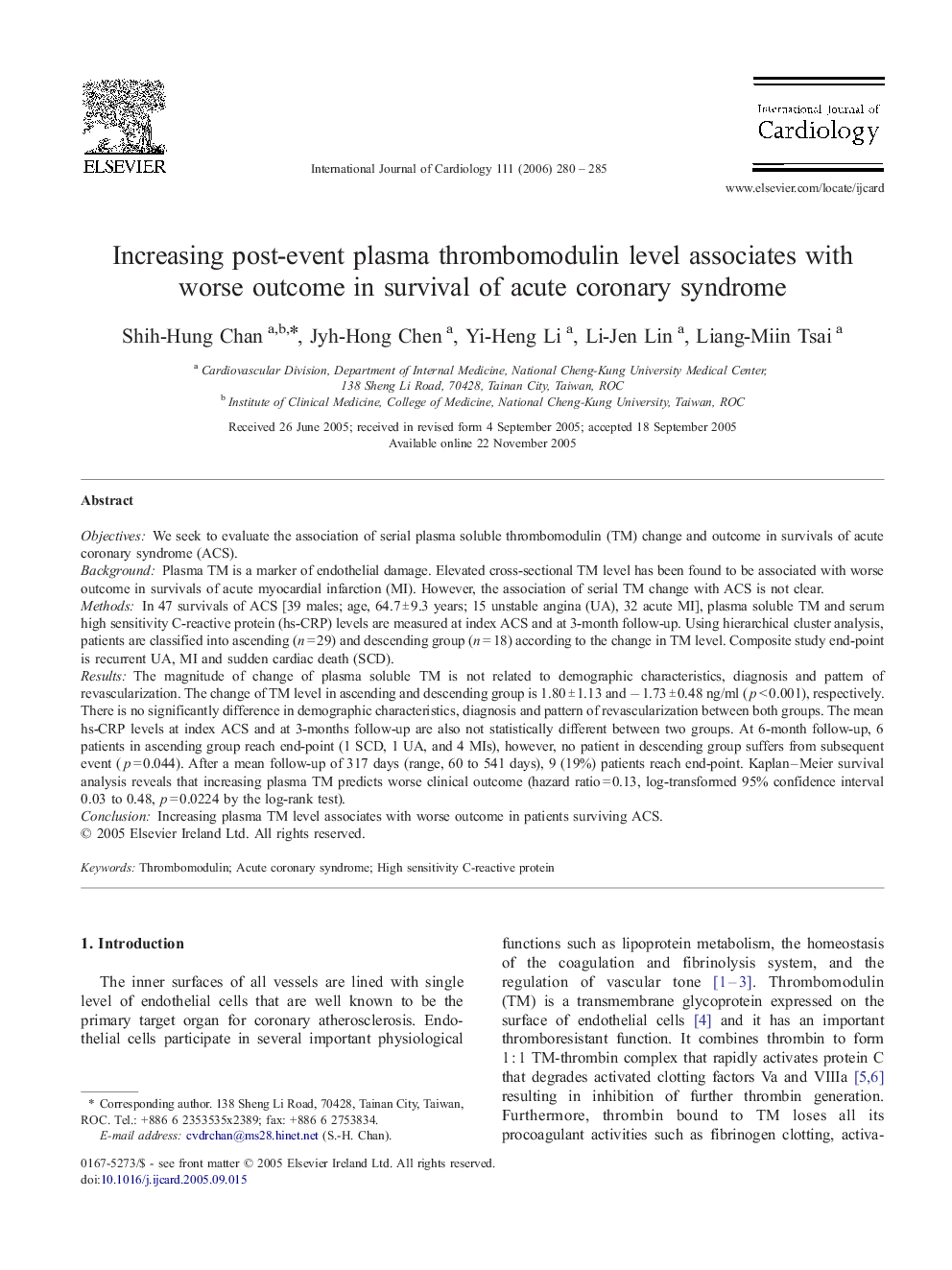| Article ID | Journal | Published Year | Pages | File Type |
|---|---|---|---|---|
| 2936089 | International Journal of Cardiology | 2006 | 6 Pages |
ObjectivesWe seek to evaluate the association of serial plasma soluble thrombomodulin (TM) change and outcome in survivals of acute coronary syndrome (ACS).BackgroundPlasma TM is a marker of endothelial damage. Elevated cross-sectional TM level has been found to be associated with worse outcome in survivals of acute myocardial infarction (MI). However, the association of serial TM change with ACS is not clear.MethodsIn 47 survivals of ACS [39 males; age, 64.7 ± 9.3 years; 15 unstable angina (UA), 32 acute MI], plasma soluble TM and serum high sensitivity C-reactive protein (hs-CRP) levels are measured at index ACS and at 3-month follow-up. Using hierarchical cluster analysis, patients are classified into ascending (n = 29) and descending group (n = 18) according to the change in TM level. Composite study end-point is recurrent UA, MI and sudden cardiac death (SCD).ResultsThe magnitude of change of plasma soluble TM is not related to demographic characteristics, diagnosis and pattern of revascularization. The change of TM level in ascending and descending group is 1.80 ± 1.13 and − 1.73 ± 0.48 ng/ml (p < 0.001), respectively. There is no significantly difference in demographic characteristics, diagnosis and pattern of revascularization between both groups. The mean hs-CRP levels at index ACS and at 3-months follow-up are also not statistically different between two groups. At 6-month follow-up, 6 patients in ascending group reach end-point (1 SCD, 1 UA, and 4 MIs), however, no patient in descending group suffers from subsequent event (p = 0.044). After a mean follow-up of 317 days (range, 60 to 541 days), 9 (19%) patients reach end-point. Kaplan–Meier survival analysis reveals that increasing plasma TM predicts worse clinical outcome (hazard ratio = 0.13, log-transformed 95% confidence interval 0.03 to 0.48, p = 0.0224 by the log-rank test).ConclusionIncreasing plasma TM level associates with worse outcome in patients surviving ACS.
